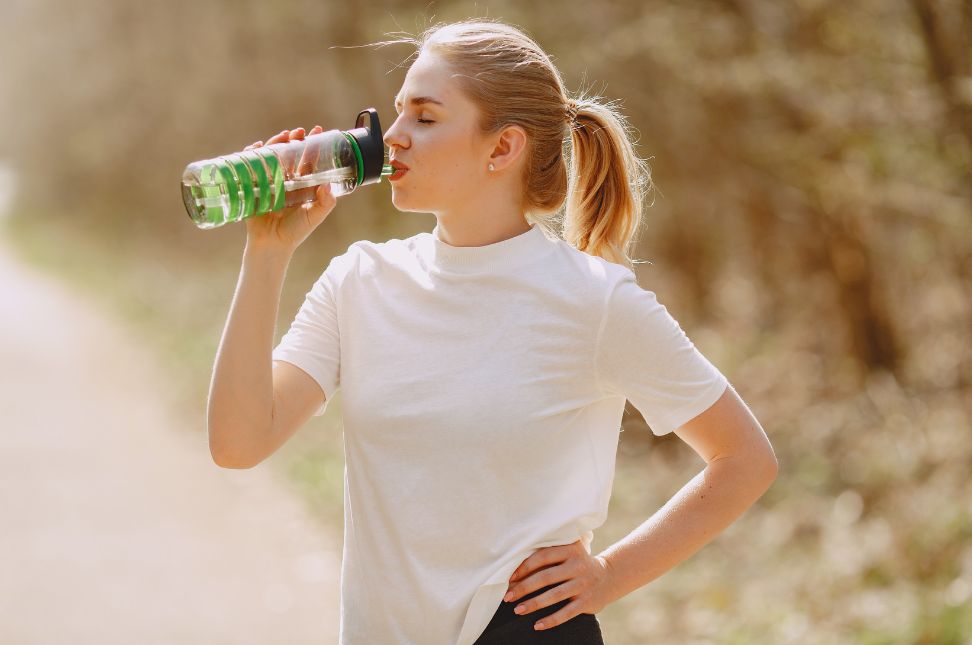Staying properly hydrated is one of the most crucial aspects of athletic performance and recovery. Whether you’re a professional athlete or an amateur enthusiast, understanding and implementing effective hydration strategies can significantly impact your performance. This article provides essential hydration tips for athletes, ensuring that you remain at your peak during training and competition.
Why Hydration is Vital for Athletes
Hydration is critical for athletes because water regulates your body temperature, lubricates joints, and transports nutrients to give you energy and keep you healthy. If you’re not properly hydrated, your body can’t perform at its highest level. You may experience fatigue, muscle cramps, dizziness, or more serious symptoms.
Hydration tips for athletes are especially important because athletes lose water more rapidly than non-athletes due to sweating during exercise. Dehydration can lead to reduced endurance, strength, and overall performance. In extreme cases, it can cause heat exhaustion or heat stroke, which are serious conditions requiring immediate medical attention.
How Much Water Do Athletes Need?
The amount of water you need can vary based on several factors, including your age, weight, and the intensity and duration of your exercise. A general rule of thumb is to drink at least half your body weight in ounces of water daily. For example, if you weigh 160 pounds, aim to drink at least 80 ounces of water each day.
However, this is just a baseline. Athletes should monitor their hydration levels closely. One of the best hydration tips for athletes is to weigh yourself before and after training sessions. For every pound lost during exercise, you should drink 16-24 ounces of water to replace the lost fluids.
Pre-Exercise Hydration
Starting exercise in a well-hydrated state is essential. One of the key hydration tips for athletes is to drink water throughout the day leading up to your workout. About 2-3 hours before exercise, aim to drink 16-20 ounces of water. Then, about 20-30 minutes before starting, drink another 8 ounces.
This approach ensures your body is hydrated and ready to perform. Hydrating before exercise also helps maintain a normal body temperature and ensures that your muscles are well-supplied with the fluids they need.
Hydration During Exercise
During exercise, it’s important to keep sipping water to stay hydrated. Athletes should aim to drink about 7-10 ounces of water every 10-20 minutes during exercise, though this can vary depending on the intensity of the workout and environmental conditions such as heat and humidity.
For activities lasting longer than an hour, consider drinking a sports beverage that contains electrolytes and carbohydrates. This is one of the critical hydration tips for athletes who engage in endurance sports like marathon running or cycling. These drinks can help maintain energy levels and replace the sodium lost through sweat.

The Role of Electrolytes
Electrolytes, including sodium, potassium, and magnesium, play a crucial role in maintaining your body’s fluid balance and muscle function. When you sweat, you lose both water and electrolytes, and it’s important to replenish both to maintain performance and avoid cramps or other issues.
For this reason, consuming electrolyte-rich beverages during prolonged or high-intensity workouts is one of the recommended hydration tips for athletes. Foods like bananas, oranges, and leafy greens also provide essential electrolytes and should be included in your diet.
Post-Exercise Hydration
Rehydration after exercise is critical for recovery. Your muscles need fluids to repair and rebuild, and rehydration also helps to reduce muscle soreness. Athletes should aim to replace all fluids lost during exercise within 2 hours of finishing.
A practical hydration tip for athletes is to drink 16-24 ounces of water for every pound of body weight lost during your workout. Including a snack or meal with your post-exercise hydration can also be beneficial. Foods like yogurt, smoothies, or protein shakes can help with both rehydration and muscle recovery.
Recognizing Signs of Dehydration
Understanding the signs of dehydration is key to maintaining proper hydration levels. Common signs include:
- Thirst
- Dry mouth
- Fatigue
- Dark yellow urine
- Dizziness
- Decreased performance
One of the most critical hydration tips for athletes is to address these signs early. If you start to feel any of these symptoms, stop your activity, drink fluids, and rest until you’re feeling better.
Hydration Tips for Different Climates
Your hydration needs can vary significantly depending on the climate. In hot and humid conditions, your body will lose water more rapidly, and you’ll need to increase your fluid intake. In colder climates, you might not feel as thirsty, but your body still requires adequate hydration to perform optimally.
For athletes training in different environments, one of the best hydration tips for athletes is to adapt your hydration strategy to the climate. In hot weather, focus on drinking more water and consuming beverages with electrolytes. In cold weather, ensure you’re drinking water regularly, even if you don’t feel as thirsty.
Conclusion
Effective hydration is one of the most critical aspects of athletic performance. By following these hydration tips for athletes, you can optimize your performance, reduce the risk of injury, and ensure quick recovery. Remember that your hydration needs are unique to you, and it’s important to listen to your body and adjust your hydration strategy as needed.
Stay consistent with your hydration efforts, both during and outside of exercise, to keep your body functioning at its best. Whether you’re a professional athlete or a weekend warrior, staying hydrated is key to achieving your fitness goals.




